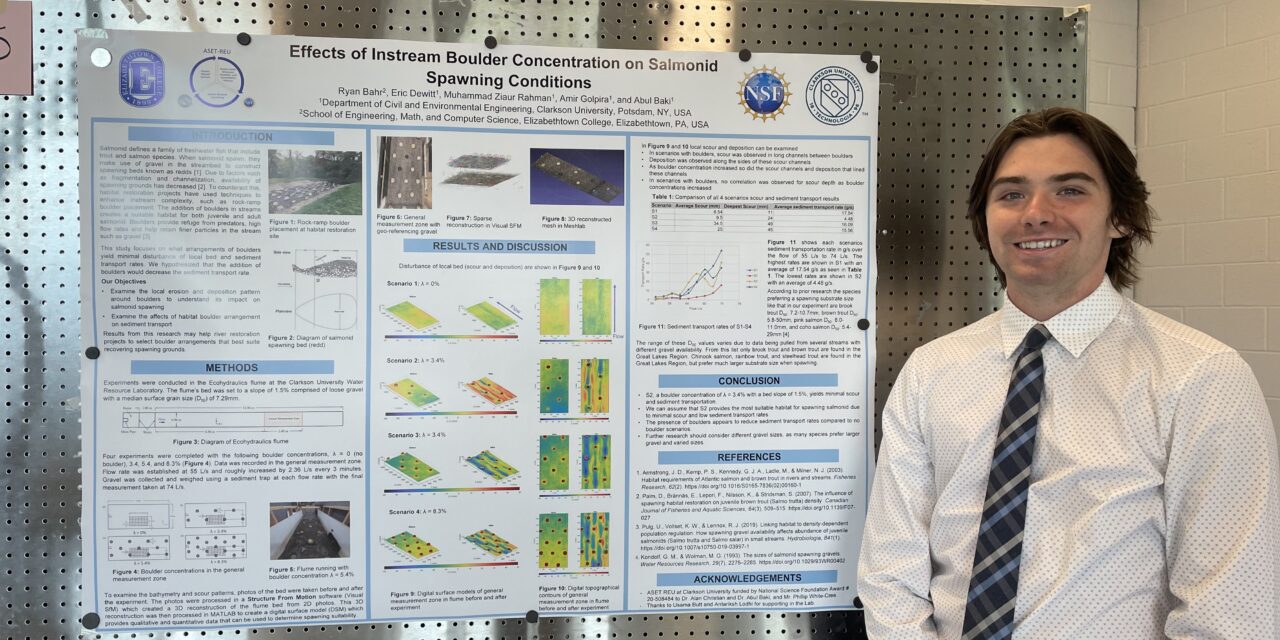Elizabethtown College Engineering major Ryan Bahr ’24 earned a pair of awards this summer for his poster presentation, “Effects of Instream Boulder Concentration on Salmonid Spawning Conditions.”
His presentation received the award for Best Undergraduate Poster Presentation in Environmental Sciences and Engineering, while also earning a Sustainability Prize.
Bahr spent his summer participating in the 10-week Clarkson University Aquatic Science, Engineering, and Technology Research Experiences for Undergraduates program (ASET).
He worked in the school’s ecohydraulics flume, a part of the water resources engineering laboratory. Bahr worked on four experiments over the summer with his research centered on how boulder concentrations in streams impact sediment transportation rates and erosion patterns on stream beds. The data from this experiment provided insight into what boulder concentration would be the best habitat for salmonid spawning, which could prove to be valuable information for future stream restoration projects.
At the end of the summer, he presented his research at Clarkson’s summer RAPS (Research and Projects Showcase), where he was presented with his pair of accolades.
“Etown’s curriculum has definitely helped to prepare me for opportunities, like I experienced this summer,” Bahr said. “Project based engineering classes have prepared me to work in groups and communicate efficiently. The Engineering faculty at the College has also been very supportive of my career goals and my professors have gone out of their way to help me with application processes, like the one I had to fill out for Clarkson’s Research Experience for Undergraduates (REU) program.”
A private research institution in Potsdam, N.Y., the Clarkson University ASET-REU program is dedicated to research surrounding the Great Lakes and Hudson River basin, as well as creating an engaged community of students through educational, professional, and social activities.
“I really enjoyed the experience this summer and the opportunity to gain knowledge in stream restoration,” Bahr said. “I hope the work I did this summer will help propel me into a career of habitat restoration, so I can make a positive impact on our environment one stream at a time!”

